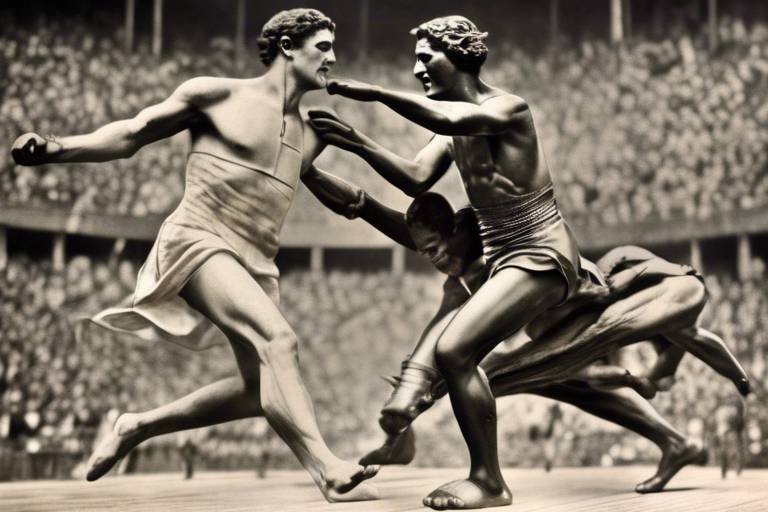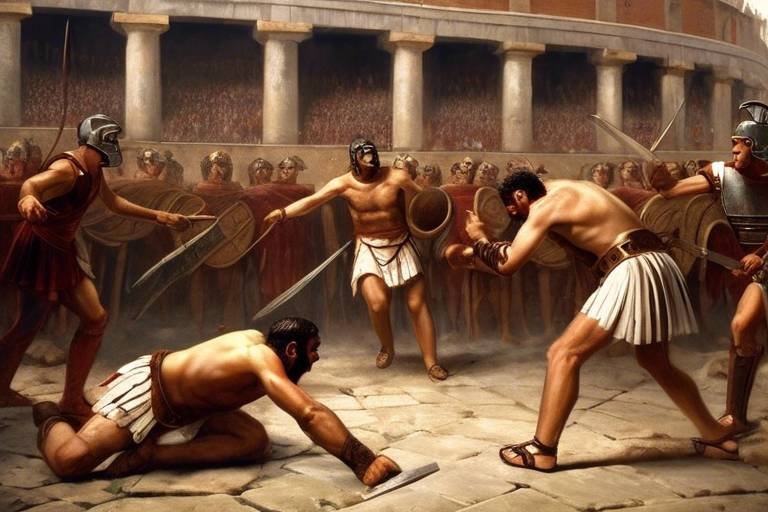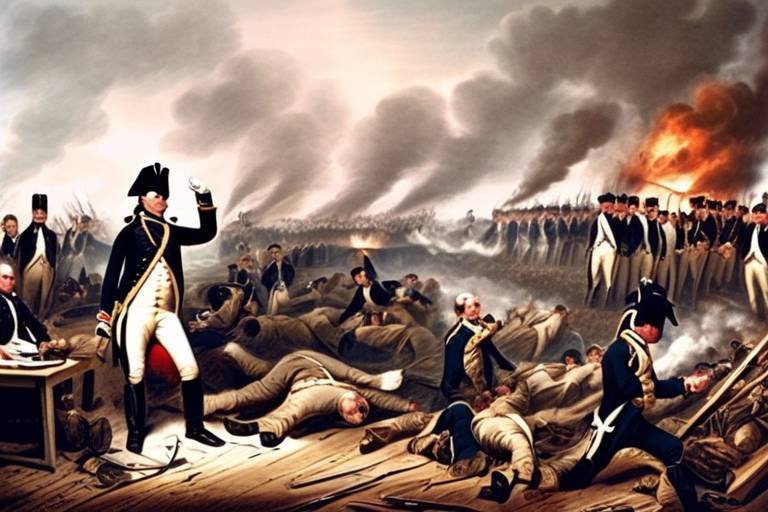Alexander the Great - Conquests and Legacy
Exploring the life, conquests, and enduring legacy of one of history's most famous rulers, Alexander the Great, who expanded his empire across vast territories and left a lasting impact on the ancient world.

Early Life and Education
Alexander the Great, a figure shrouded in myth and legend, had a remarkable early life that laid the foundation for his future conquests and achievements. Born in 356 BC in the ancient kingdom of Macedon, Alexander was the son of King Philip II and Queen Olympia. From a young age, he exhibited exceptional intelligence and a thirst for knowledge, traits that would shape his education and ambitions.
Under the guidance of the renowned philosopher Aristotle, who served as his tutor, Alexander received a comprehensive education in subjects ranging from philosophy and literature to warfare and politics. Aristotle instilled in him a love for learning and a deep appreciation for Greek culture, which would influence Alexander's later actions and decisions.
As he grew older, Alexander became increasingly fascinated by tales of heroic conquests and the exploits of legendary figures like Achilles. These stories fueled his desire for glory and greatness, driving him to dream of emulating the feats of his mythical idols. His exposure to the epic poems of Homer and the teachings of Aristotle instilled in him a sense of destiny and a belief in his own divine mission.
Moreover, Alexander's upbringing in the royal court of Macedon exposed him to the intricacies of court politics and military strategy. He observed his father, King Philip II, as he expanded and consolidated his kingdom through a combination of diplomacy and military might. These experiences instilled in Alexander a keen understanding of statecraft and warfare, preparing him for the challenges that lay ahead.
By the time he ascended to the throne at the age of 20, following the assassination of his father, Alexander was already a seasoned leader with a vision of creating a vast empire that would surpass all others. His early life and education had equipped him with the skills and knowledge necessary to embark on his legendary conquests, shaping him into one of history's most formidable and ambitious rulers.

Conquests in Persia
Exploring the life, conquests, and enduring legacy of one of history's most famous rulers, Alexander the Great, who expanded his empire across vast territories and left a lasting impact on the ancient world.
During his conquests in Persia, Alexander the Great displayed remarkable military prowess and strategic acumen. His campaigns against the Persian Empire, led by King Darius III, were marked by decisive battles that altered the course of history.
At the Battle of Issus, Alexander achieved a stunning victory over Darius III, showcasing his tactical brilliance and the fierce loyalty of his troops. This triumph solidified his reputation as a formidable commander and instilled fear in his enemies.
However, it was the Battle of Gaugamela that truly sealed Alexander's legacy as a conqueror. Against overwhelming odds, he outmaneuvered and defeated Darius III, effectively shattering the Persian Empire and asserting his dominance in the region.
Through these conquests, Alexander not only expanded his empire but also demonstrated his ability to adapt to diverse terrains and overcome formidable adversaries. His relentless pursuit of victory and his unwavering determination set him apart as a leader of unparalleled ambition and vision.
1. What was the significance of Alexander's conquests in Persia?
Alexander's conquests in Persia were significant as they marked the downfall of the mighty Persian Empire and established him as one of the greatest military leaders in history.
2. How did Alexander's victories in Persia shape the ancient world?
Alexander's victories in Persia reshaped the political landscape of the ancient world, leading to the spread of Greek influence and culture throughout the conquered territories.
3. What were the key battles fought by Alexander in Persia?
Alexander fought crucial battles such as Issus and Gaugamela in Persia, where he showcased his military genius and secured decisive victories that paved the way for his empire's expansion.

Expansion into Egypt and Beyond
As Alexander's conquests continued, his ambitions led him to expand his empire into Egypt and beyond, marking a significant chapter in his legendary campaign. The strategic conquest of Egypt in 332 BC not only added a prosperous region to his dominion but also solidified his control over the eastern Mediterranean. With the founding of the city of Alexandria, Alexander established a pivotal center of culture, trade, and learning that would endure for centuries.
From Egypt, Alexander pushed further eastward, venturing into the heart of Asia and reaching as far as the borders of India. His military prowess and strategic acumen allowed him to overcome formidable challenges and secure victories that seemed impossible. The Battle of Gaugamela in 331 BC, where Alexander decisively defeated the Persian king Darius III, showcased his tactical brilliance and cemented his reputation as a masterful commander.
Amidst his conquests, Alexander also sought to blend cultures and foster cooperation among diverse peoples. His encounters with different civilizations enriched his understanding of the world and inspired him to create a vast empire that transcended geographical boundaries. The fusion of Greek, Persian, and Egyptian influences in his administration reflected his vision of unity through diversity.
While expanding his empire, Alexander encountered new landscapes, encountered exotic flora and fauna, and interacted with unfamiliar customs. These experiences not only shaped his worldview but also influenced the cultural exchange that characterized the Hellenistic era. The legacy of his expeditions reverberated across continents, leaving an indelible mark on the regions he touched.

Legacy of Hellenistic Culture
The legacy of Hellenistic culture left by Alexander the Great is a fascinating tapestry of influence that stretched across the ancient world. As Alexander conquered vast territories, he not only spread Greek ideals of art, philosophy, and governance but also blended them with the diverse cultures he encountered. This fusion of Greek and Eastern traditions gave rise to a new cultural era known as the Hellenistic period.
One of the most significant aspects of Alexander's legacy is the diffusion of Greek language throughout his empire. Greek became the common tongue of administration and communication, facilitating trade and cultural exchange among diverse populations. This linguistic unity laid the foundation for the spread of Greek literature, science, and philosophy, shaping the intellectual landscape of the Hellenistic world.
Art and architecture flourished under the patronage of Alexander and his successors, leading to the creation of magnificent cities adorned with Greek-style monuments and sculptures. The blending of Greek artistic techniques with local traditions produced a unique artistic synthesis that reflected the multicultural nature of the Hellenistic kingdoms.
Furthermore, the establishment of new cities by Alexander, such as Alexandria in Egypt, served as centers of learning and innovation. These cosmopolitan hubs attracted scholars, scientists, and philosophers from across the empire, fostering a vibrant intellectual environment that enriched the cultural tapestry of the Hellenistic world.
Trade and commerce thrived in the wake of Alexander's conquests, connecting distant regions and fostering economic prosperity. The exchange of goods, ideas, and technologies between East and West fueled a period of cultural exchange and innovation, leading to advancements in fields such as astronomy, mathematics, and medicine.
In essence, the legacy of Hellenistic culture left by Alexander the Great transcended mere conquest and empire-building. It represented a transformative era of cultural synthesis and exchange that laid the groundwork for the rich tapestry of traditions that defined the ancient world.
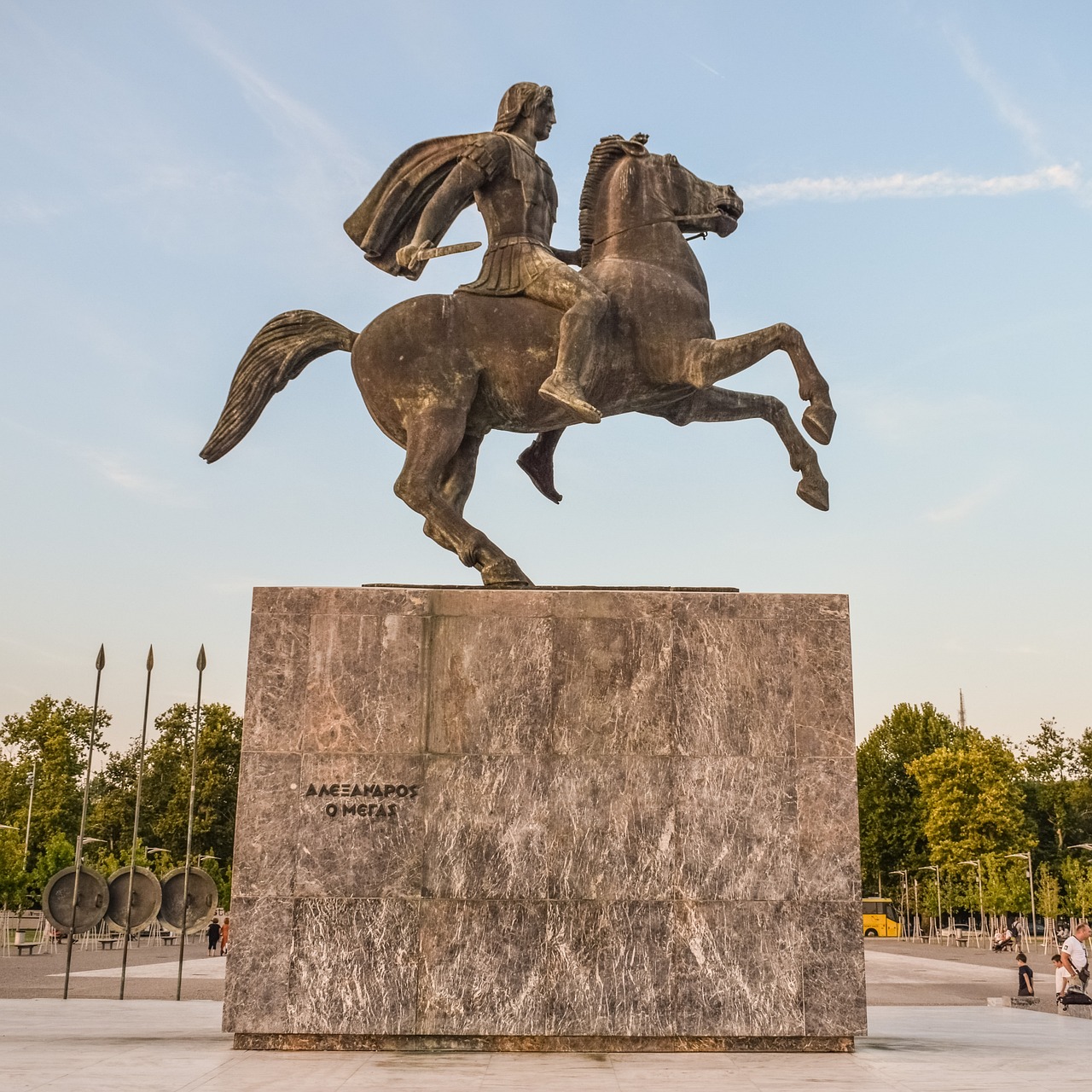
City Foundations and Alexandria
Alexander the Great's legacy extends beyond his conquests to the establishment of cities that served as bastions of culture, trade, and learning. Among these, Alexandria in Egypt stands out as a testament to his vision and strategic foresight. Founded in 331 BC, Alexandria quickly became a hub of intellectual and commercial activity, boasting the famous Library of Alexandria, which housed a vast collection of knowledge from across the ancient world.
Designed as a melting pot of cultures, Alexandria attracted scholars, scientists, and philosophers, fostering a vibrant exchange of ideas that influenced the development of Western thought. The city's cosmopolitan nature reflected Alexander's belief in cultural diffusion and the blending of diverse traditions to create a harmonious society.
One of the key features of Alexandria was its layout, characterized by wide streets, public squares, and monumental architecture that showcased the grandeur of Hellenistic urban planning. The city's strategic location on the Mediterranean coast facilitated trade and communication, making it a pivotal center for commerce in the ancient world.
Alexandria's legacy endured long after Alexander's death, with the city continuing to thrive as a beacon of knowledge and innovation. Its famed lighthouse, the Pharos, was considered one of the Seven Wonders of the Ancient World, symbolizing the city's status as a maritime powerhouse and a symbol of human ingenuity.
Through the foundation of cities like Alexandria, Alexander the Great not only expanded his empire but also laid the groundwork for the diffusion of Greek culture and ideas across the vast territories he conquered. These urban centers served as monuments to his enduring legacy, shaping the course of history and leaving an indelible mark on the ancient world.

Death and Succession
After years of conquest and expansion, Alexander the Great's life came to a sudden and mysterious end in Babylon in 323 BC. Speculation and theories abound regarding the cause of his death, with some attributing it to natural causes, while others suggest foul play or poisoning. The absence of a clear successor to the vast empire he had built sparked a fierce power struggle among his top generals, known as the Diadochi, as they vied for control and supremacy.
Amidst the chaos following Alexander's death, his empire was eventually divided into several kingdoms, each ruled by a different general. The Wars of the Diadochi ensued, characterized by shifting alliances, betrayals, and conflicts as the former allies turned against each other in their quest for power and dominance.
One of the most prominent figures to emerge from this period of turmoil was Seleucus I Nicator, who established the Seleucid Empire in the eastern territories of Alexander's realm. Ptolemy I Soter took control of Egypt and founded the Ptolemaic dynasty, while Antigonus I Monophthalmus and his son Demetrius Poliorcetes sought to expand their influence in the Greek world.
The legacy of Alexander the Great was not only his conquests but also the enduring impact of his death on the geopolitical landscape of the ancient world. The power struggles that followed his passing reshaped the map of his empire and set the stage for the rise of new dynasties and kingdoms, each claiming a piece of his vast legacy.

Historical Accounts and Interpretations
Historical accounts of Alexander the Great's life and conquests have been a subject of fascination and debate among scholars and historians for centuries. The vastness of his empire, the speed of his conquests, and the enduring impact he left on the ancient world have sparked various interpretations and analyses.
Some historians view Alexander as a brilliant military strategist and visionary leader who reshaped the political landscape of his time. His ability to inspire loyalty among his troops and his strategic prowess in battle are often highlighted as key factors in his success.
On the other hand, some scholars criticize Alexander for his ruthless tactics in warfare and the destruction he brought upon the lands he conquered. The burning of Persepolis, the ancient capital of the Persian Empire, is often cited as a controversial decision that showcases the darker aspects of his conquests.
Modern interpretations of Alexander's legacy also delve into his personal character and motivations. Was he driven by a thirst for power and glory, or was he genuinely interested in spreading Greek culture and knowledge to the far reaches of his empire?
Furthermore, revisionist historians have reexamined traditional accounts of Alexander's life, questioning the accuracy of certain narratives and seeking to uncover hidden truths about his reign. These alternative perspectives offer new insights into the complexities of his rule and the impact of his conquests.
In conclusion, the historical accounts and interpretations of Alexander the Great's life continue to evolve as new discoveries are made and fresh perspectives are brought to light. His legacy remains a subject of fascination and scholarly inquiry, inviting us to explore the complexities of one of history's most enigmatic figures.
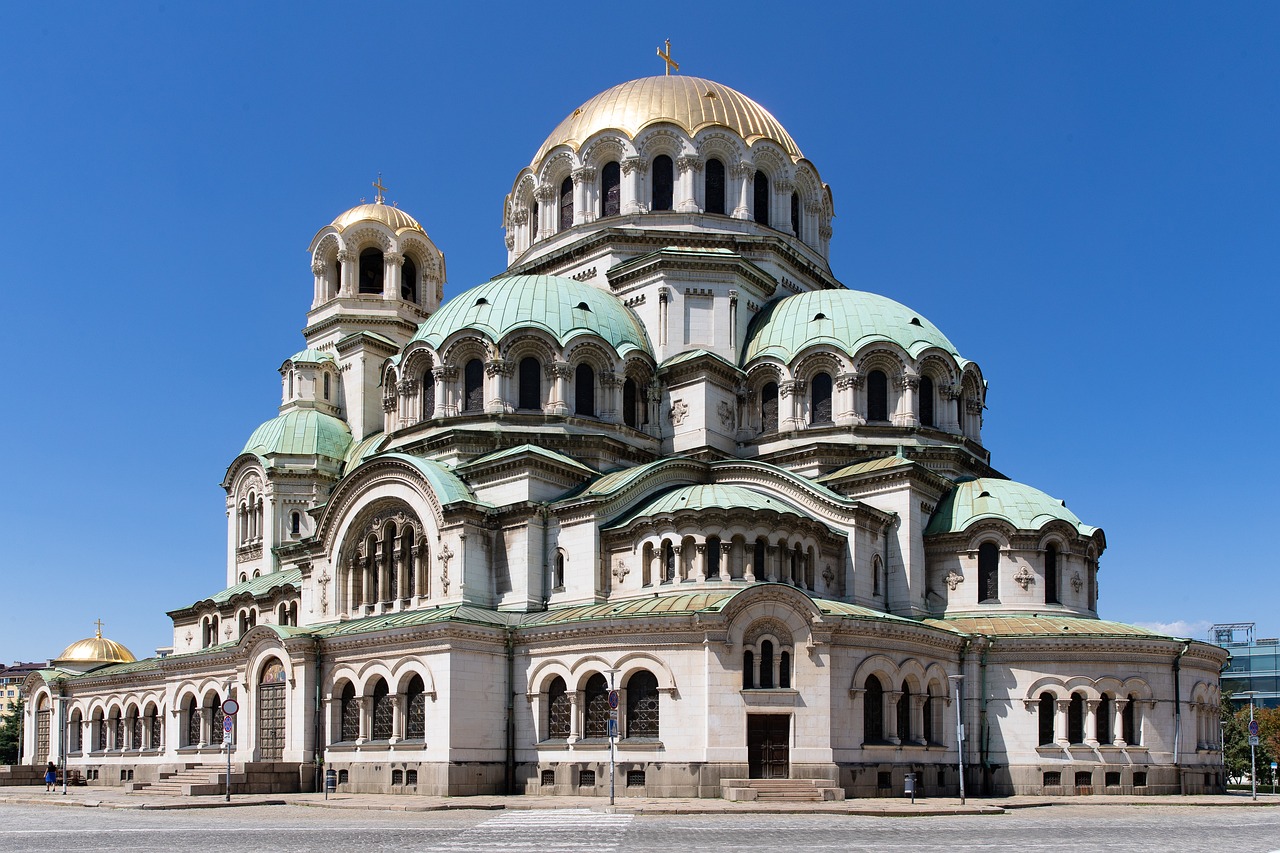
Enduring Influence and Popular Culture
Exploring the enduring influence and representation of Alexander the Great in popular culture reveals the profound impact of his legacy on various artistic mediums. From literature to film and art, Alexander's conquests and leadership have continued to captivate audiences worldwide. Countless novels, poems, and plays have been inspired by his life, depicting his military prowess and strategic brilliance. In the realm of cinema, numerous movies have portrayed Alexander's epic battles and his quest for world domination, bringing his story to the big screen for modern audiences.
Furthermore, Alexander's legacy has permeated the art world, with countless paintings and sculptures dedicated to immortalizing his achievements. Artists throughout history have sought to capture the essence of his charisma and ambition, creating masterpieces that celebrate his enduring influence. The iconic image of Alexander on horseback, leading his troops into battle, has become a symbol of leadership and conquest in art galleries around the world.
In addition to traditional artistic representations, Alexander the Great has also found a place in popular culture through video games and television series. Gamers can step into the shoes of the great conqueror, leading armies to victory in virtual worlds that bring his conquests to life in interactive ways. Television shows and documentaries further explore his life and legacy, delving into the complexities of his character and the impact of his empire on the ancient world.
Frequently Asked Questions
- 1. Who was Alexander the Great?
Alexander the Great, also known as Alexander III of Macedon, was a renowned ancient Greek king and military commander who lived from 356 BC to 323 BC. He is widely regarded as one of history's greatest military geniuses, known for his strategic conquests and the vast empire he established.
- 2. What were Alexander's most famous conquests?
Alexander's most famous conquests include his campaigns against the Persian Empire, notably the battles of Issus and Gaugamela, where he defeated the Persian King Darius III. He also conquered Egypt, parts of Asia, and reached as far as the borders of India, expanding his empire across vast territories.
- 3. How did Alexander spread Hellenistic culture?
Alexander's empire played a significant role in spreading Greek culture, art, and language throughout the lands he conquered. This cultural diffusion, known as Hellenization, influenced the development of the Hellenistic world and left a lasting impact on the regions under his rule.
- 4. What is the legacy of Alexander the Great?
Alexander's legacy includes his establishment of numerous cities, the most famous being Alexandria in Egypt, as centers of culture, trade, and learning. His leadership, conquests, and the diffusion of Greek culture have continued to inspire fascination and admiration in popular culture and historical accounts.
- 5. How did Alexander's death impact his empire?
Alexander's sudden death at a young age led to power struggles among his generals for control of his vast empire. This period of instability marked the beginning of the Hellenistic period, as his successors, known as the Diadochi, divided his territories and established their own kingdoms.















